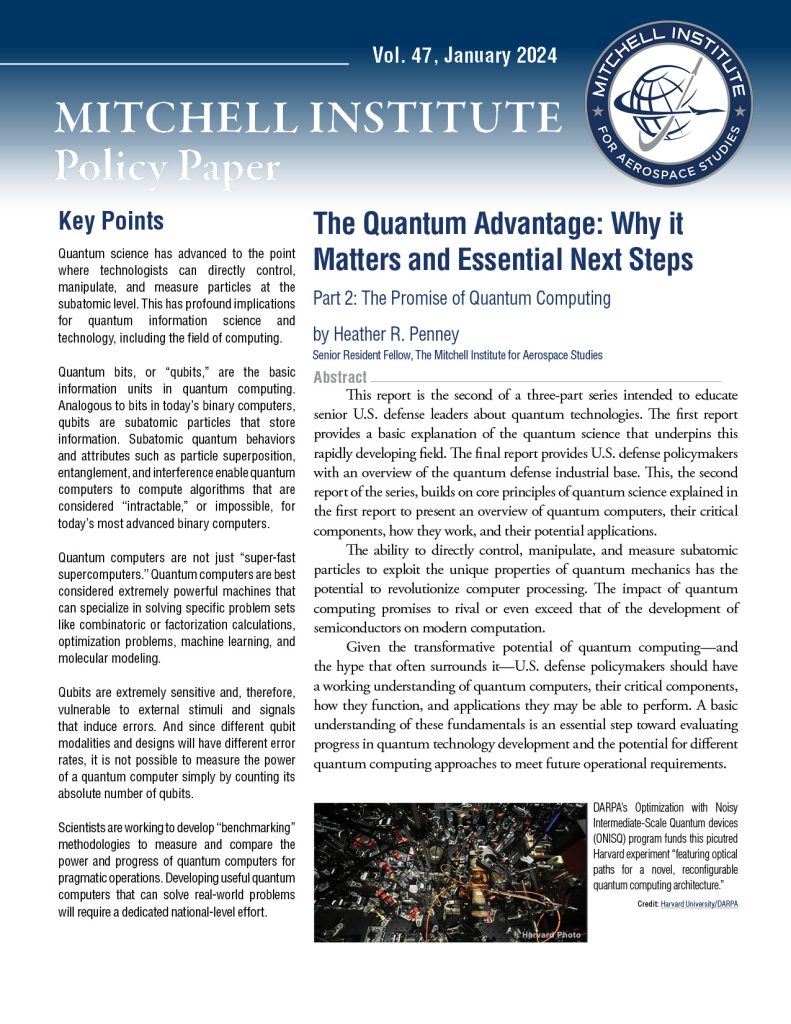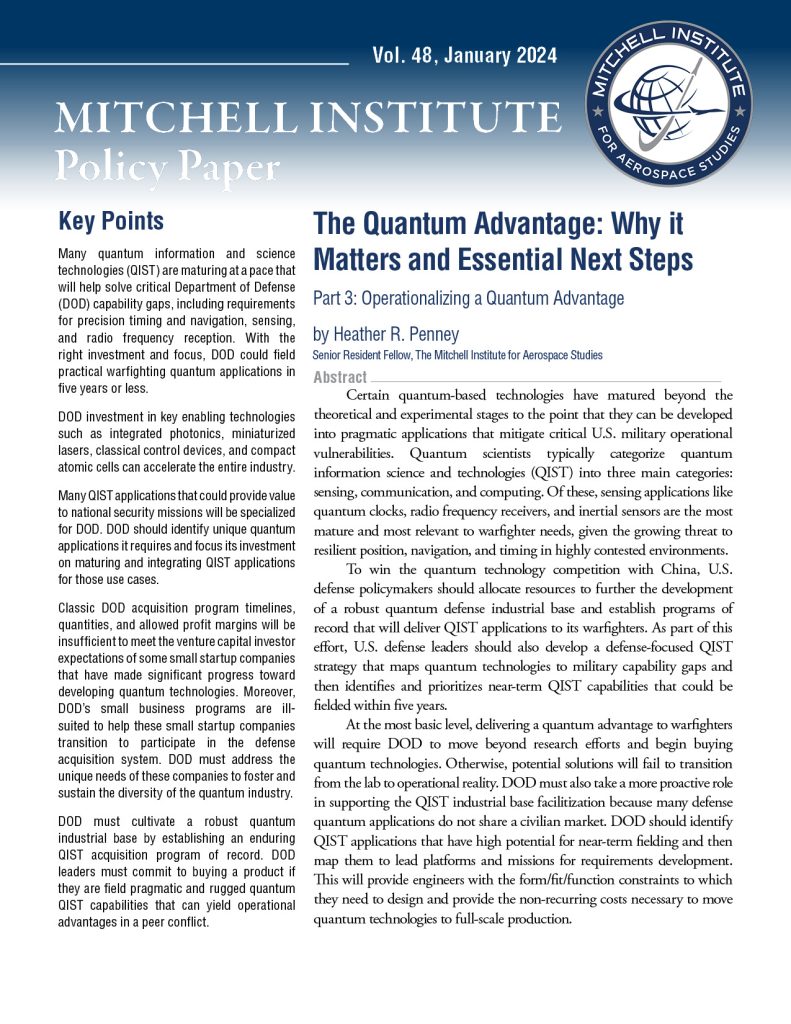


Arlington, VA | January 30, 2024 — The Mitchell Institute for Aerospace Studies is proud to announce three new Policy Papers in a series on quantum capabilities for national security applications by Heather R. Penney, Senior Resident Fellow.
Quantum information science and technology (QIST) is a major focus of defense innovation, yet few in the defense community really understand what is needed to mature these technologies into valuable warfighter capabilities. U.S. policymakers often jump to quantum computing when speaking of QIST advantages. Yet, other quantum applications are advancing at a pace that can fix known defense vulnerabilities and capability gaps within the next five years—things like timing, navigation, sensing, and radio frequency reception. Because many applications are defense-specific, DoD needs an investment strategy that goes well beyond research and development. This series of reports helps to demystify the science behind quantum technologies, explain why securing a lead in this field matters to warfighters, and recommend the next steps U.S. defense leaders should take to achieve a quantum advantage.
The Mitchell Institute Policy Papers is a series presenting new thinking and policy proposals to respond to the emerging security and aerospace power challenges of the 21st century. These papers are written for lawmakers and their staffs, policy professionals, business and industry, academics, journalists, and the informed public.
For media inquiries, email our publications team at publications.mitchellaerospacepower@afa.org
Copies of Policy Papers can be downloaded at https://www.mitchellaerospacepower.org/publications